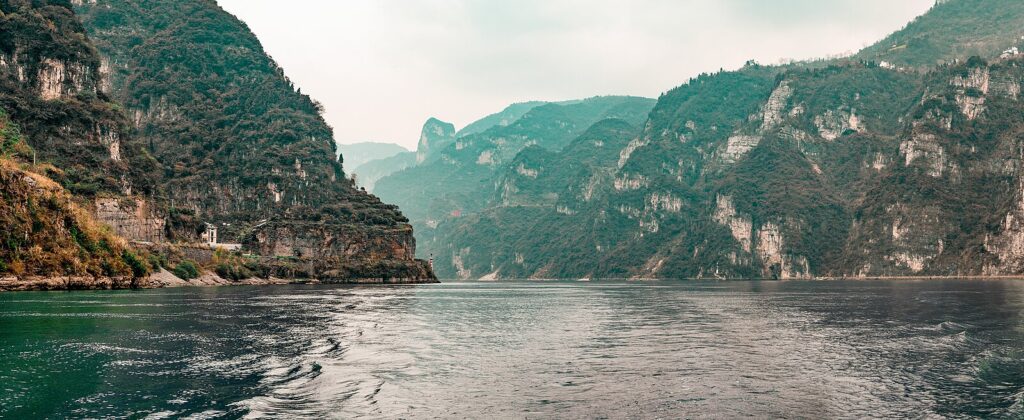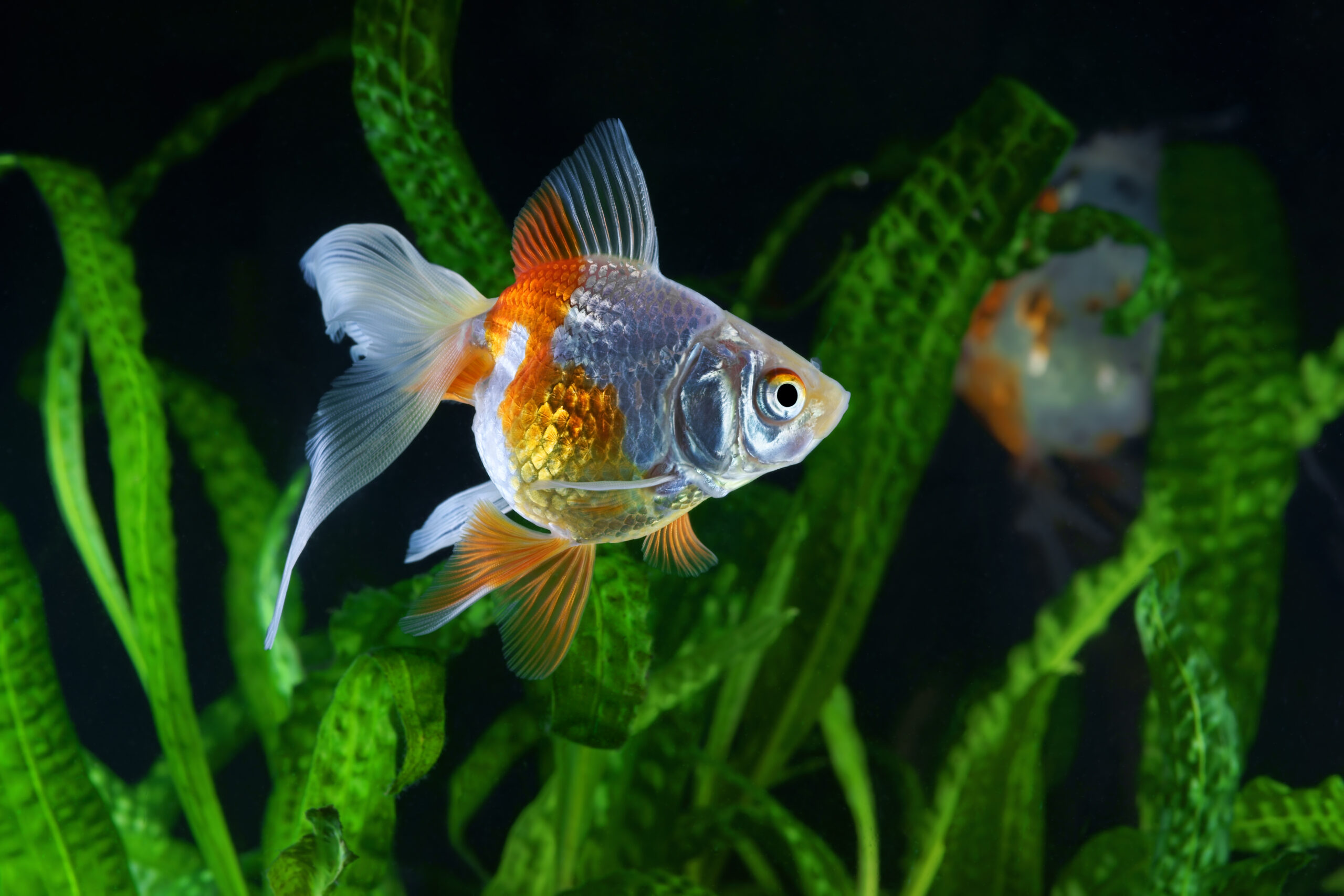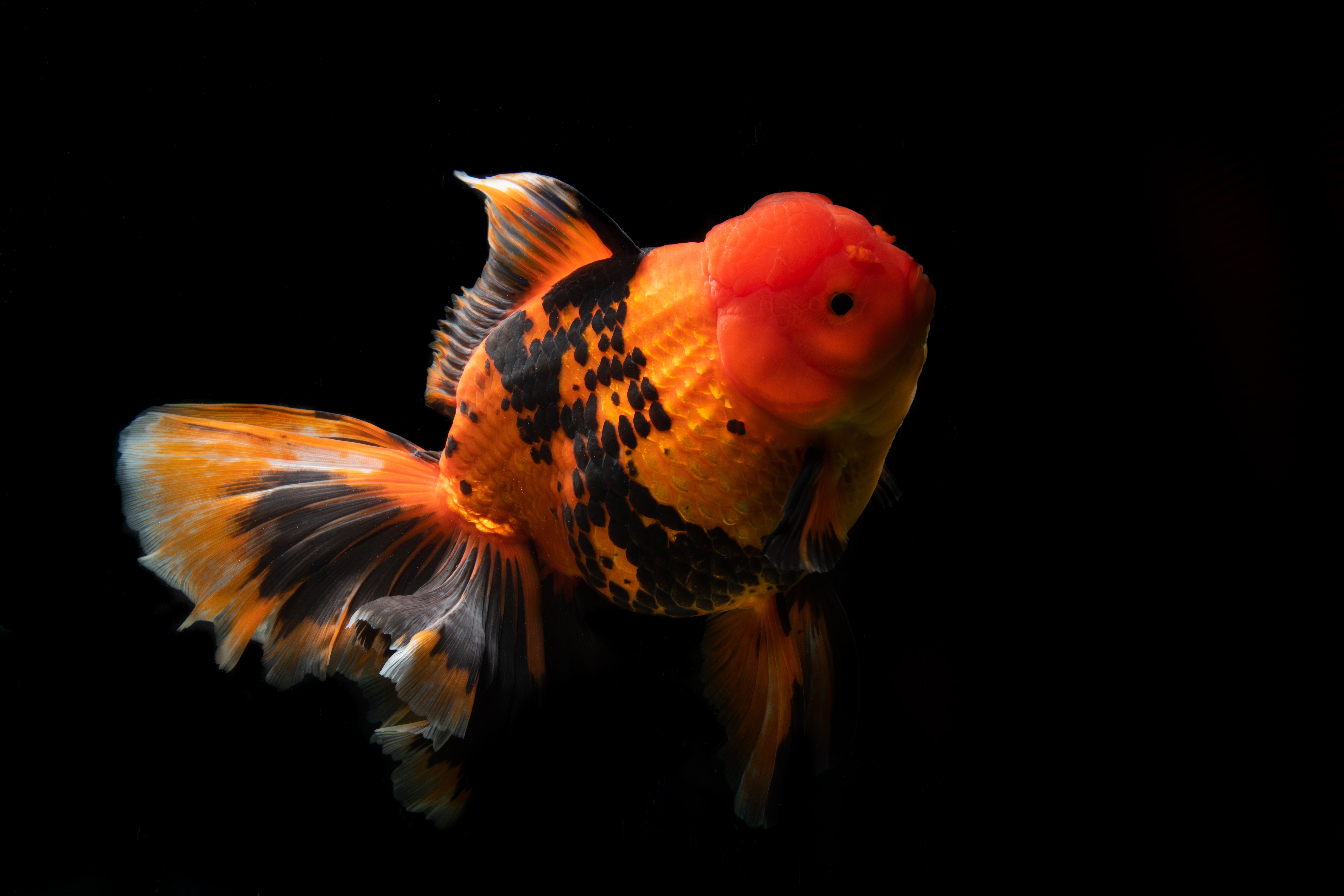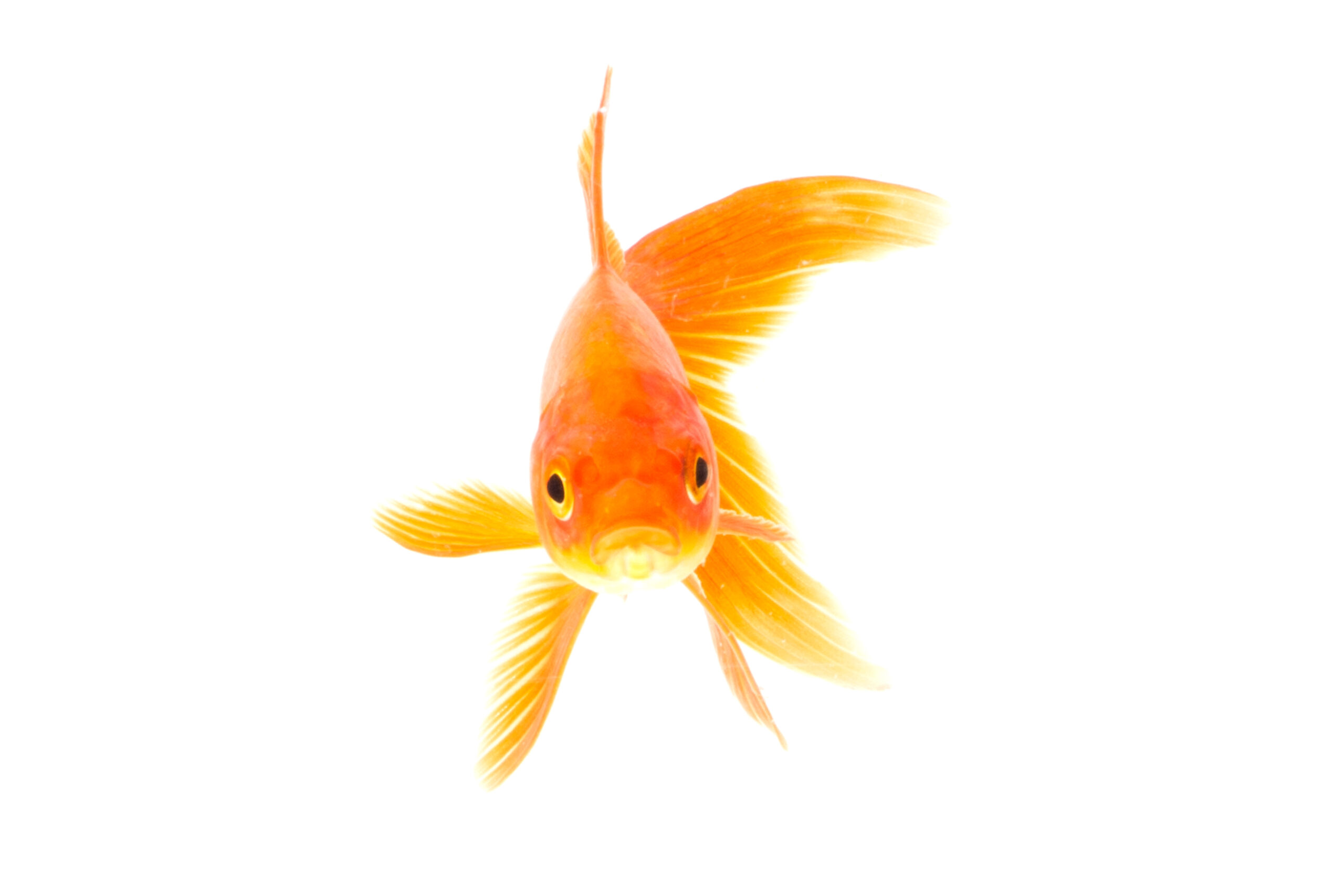Can I keep goldfish with tropical fish.
My knee-jerk response was no, that these are cold-water fish and they need different things. But I suddenly thought, where did I get that information from? I could be totally wrong, and it turned out that in some ways I was.
What is a goldfish?
If I showed you all the fish we sell as goldfish you’d never believe they were all the same species. But what species are Goldfish, and is there a wild counterpart, in the same way Guppys still have a wild form?
We’ve kept fish almost as long as we’ve been able to build ponds to keep them in. The Romans used the term piscinarii (fish fanciers). Writing about 37 BC Varro talks about fish ponds, “For in the first place they are built at great cost, in the second place they are stocked at great cost, and in the third place they are kept up at great cost” (On Agriculture, III.17.2) Let’s be honest not much has changed there.
But sometime during the Tsin Dynasty (265–419 A.D.) of China we see mentions of native small carp being selected for colours and body shape. It wasn’t until around 1700 AD that goldfish were first exported to Europe.
Are there still wild versions of goldfish though? Recent DNA research has placed the goldfish as being descended from Carassius auratus from the lower Yangtze River. There is a huge amount of variety in the species, and the lineages, which may be subspecies, are still being revised so frequently that I suspect something will have changed by the time I’ve finished writing this article.
Until something changes we’re all happy with the original range being the lower Yangtze River. Luckily for us there are studies on the water temperature there. For a rough guide during the winter we are looking at about 10 degrees C, rising to 25 degrees C in the summer. But those are the extremes throughout the area. It’s likely the fish will see something closer the middle of that range.

Problem solved you might say, 25C in summer means they can take tropical temperatures. No, let’s not just leave it there. Firstly that’s the extreme end of the scale, and may be suitable for a short period of time, but not year round. Secondly, many of the carp species of the Yangtze floodplain migrate throughout the year. Water temperatures can fluctuate throughout the natural range as they move deeper, or into shade. But this is a sub tropical or temperate climate, not tropical.
So what’s the impact of heat on goldfish? A study in 2019 compared a control group kept in 17-degree C water, to a group put in 30-degree C water. It’s no surprise that the warmer group used more oxygen, but the more concerning thing is that the plasma cortisol concentrations also climbed. Cortisol is the stress hormone, that’s not a good thing. There was also a change in the way they metabolised amino acids.
There is a slight caveat to that information. We know that goldfish acclimated to warm water will start to produce a protein that has some protective effects against warm water, stress and heavy metal exposure. WAP65 (Warm temperature Acclimation-related Protein) but here’s the crucial thing. We don’t know if that just keeps them alive and the stress impacts will carry on accumulating, or that it has long-term protective effects on all negatives. I’ll be honest a read through several papers seems to imply that it helps keep them alive, but it doesn’t mean that a goldfish in warm water is thriving.
So can goldfish be kept in warmer waters? Yes. Should they be kept in warmer waters, no. Personally, I would aim for the middle of those temperature ranges, basically what you get in a heated house, somewhere around 15 tp 20 degree C but equally don’t be pulling your hair out with stress during our brief summer weeks.

That’s only half the question though. Can goldfish be kept with tropical fish? I’m going to extend that to temperate and tropical fish.
Goldfish are known to be messy, this is in part due to their digestion system lacking a true stomach. There is a pouch that is a primitive stomach, but there isn’t a specific low-pH region that most other species have. However, studies have shown a difference in pH in goldfish digestion between starved states and when they are digesting their food.
Another issue here is that so many goldfish are bred to have a deformed shape, and that will have an impact on the functioning of their digestion. In the wild goldfish seem to favour a wide variety of foods, but with vegetation making up 45% of their diet, 21% insects and their larvae, and zooplankton making up about 4%. This mixed diet probably slows the transit of the food in a way that a pellet or flake doesn’t, and without a true stomach to hold on to the food for a period of time, then much of the protein will remain undigested.

Evolution has dealt with this. Most fish can adapt to small ammonia level rises after eating, especially If that rise is internal to the fish, but Goldfish are remarkably well adapted to ammonia. This isn’t to say they can survive in an uncycled tank. But they’ve got a better chance than most other species. Meaning a couple of goldfish in your tank will be subjecting your other fish to spikes of ammonia.
Goldies will have a go at eating your other fish as well, and during breeding season when they are chasing each other around the tank like idiots, then that’s stressful for everyone involved.
Goldies are wonderful, but they are carp, and get large. A single-tailed fish needs a pond’s level of space. A fancy variety given enough space and clean water will become a swimming grapefruit, and they are a schooling fish, so you need at least 6. This means a 600 litre tank minimum, with excellent filtration, and low flow, a challenge in itself. They do better in hard water and need a specialist diet.
Overall I’d say no, you can’t keep them with tropical fish. But in a specialist set up on their own with huge amounts of space to grow and thrive? Then enjoy.

Further Reading
Bajer, P., H. Lim, M. Travaline, B. Miller, P. Sorensen. 2010. Cognitive aspects of food searching behavior in free-ranging wild common carp. Environmental Biology of Fishes, 88/3: 295-300.
John F. Cockrem, Mohammad A. Bahry, Vishwajit S. Chowdhury, 2019 Cortisol responses of goldfish (Carassius auratus) to air exposure, chasing, and increased water temperature, General and Comparative Endocrinology, Volume 270, 2019, Pages 18-25,
Kikuchi, K., Watabe, S. & Aida, K. The Wap65 gene expression of goldfish (Carassius auratus) in association with warm water temperature as well as bacterial lipopolysaccharide (LPS). Fish Physiology and Biochemistry 17, 423–432 (1997). https://doi.org/10.1023/A:1007768531655
Kiyoshi Kikuchi, Michiaki Yamashita, Shugo Watabe, Katsumi Aida, 1995 The Warm Temperature Acclimation-related 65-kDa Protein, Wap65, in Goldfish and Its Gene Expression (∗), Journal of Biological Chemistry, Volume 270, Issue 29, 1995, Pages 17087-17092,
Maier, K.J. and Tullis, R.E. (1984), The effects of diet and digestive cycle on the gastrointestinal tract pH values in the goldfish, Carassius auratus L., Mozambique tilapia, Oreochromis mossambicus (Peters), and channel catfish, Ictalurus punctatus (Rafinesque). Journal of Fish Biology, 25: 151-165. https://doi.org/10.1111/j.1095-8649.1984.tb04862.x
Ru, H.-.-J. and Liu, X.-.-Q. (2013), River-lake migration of fishes in the Dongting Lake area of the Yangtze floodplain. J. Appl. Ichthyol., 29: 594-601. https://doi.org/10.1111/jai.12116
Takada, M., Tachihara, K., Kon, T. et al. Biogeography and evolution of the Carassius auratus-complex in East Asia. BMC Evol Biol 10, 7 (2010). https://doi.org/10.1186/1471-2148-10-7
Wang SY, Luo J, Murphy RW, Wu SF, Zhu CL, Gao Y, Zhang YP. Origin of Chinese goldfish and sequential loss of genetic diversity accompanies new breeds. PLoS One. 2013;8(3):e59571. doi: 10.1371/journal.pone.0059571. Epub 2013 Mar 19. PMID: 23527220; PMCID: PMC3602300.
Wang, Y., Han, G., Pham, C.V. et al. An acute increase in water temperature can increase free amino acid concentrations in the blood, brain, liver, and muscle in goldfish (Carassius auratus). Fish Physiol Biochem 45, 1343–1354 (2019). https://doi.org/10.1007/s10695-019-00642-5+9
Wilkie, M., M. Pamenter, S. Duquette, H. Dhiyebi, N. Sangha, G. Skelton, M. Smith, L. Buck. 2011. The relationship between NMDA receptor function and the high ammonia tolerance of anoxia-tolerant goldfish. The Journal of Experimental Biology, 214/24: 4107-4120.
Zeng, L.-.-Q. and Fu, S.-.-J. (2024), Fasting and digestion exert opposite effects on collective behavior in goldfish across contexts. J Zool. https://doi.org/10.1111/jzo.13166
Zhang H, Kang M, Wu J, Wang C, Li J, Du H, Yang H, Wei Q. Increasing River Temperature Shifts Impact the Yangtze Ecosystem: Evidence from the Endangered Chinese Sturgeon. Animals (Basel). 2019 Aug 20;9(8):583. doi: 10.3390/ani9080583. PMID: 31434296; PMCID: PMC6720547.
